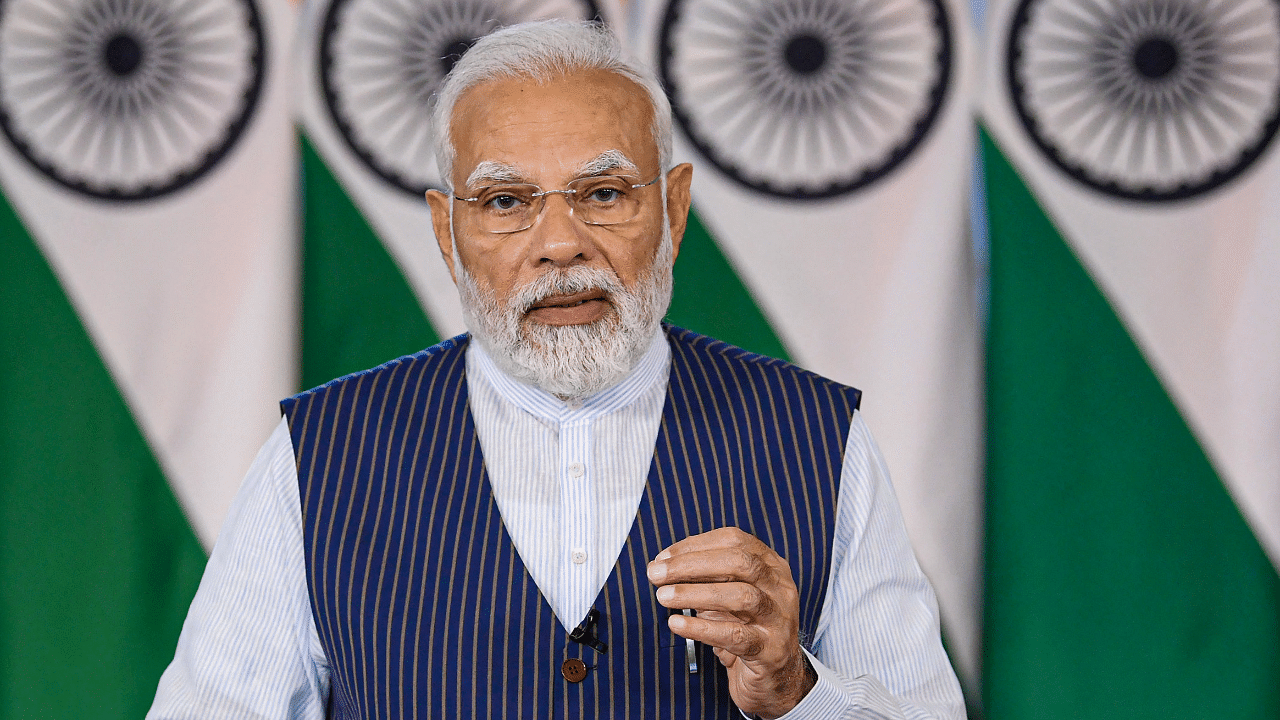
Prime Minister Narendra Modi will release the latest tiger census data at a mega event to mark the completion of 50 years of 'Project Tiger' in Mysuru on Sunday. He will also release the government's vision for tiger conservation during 'Amrit Kaal', and also launch the International Big Cats Alliance (IBCA).
IBCA will focus on protection and conservation of seven major big cats of the world -- Tiger, Lion, Leopard, Snow Leopard, Puma, Jaguar and Cheetah, with membership of the range countries harbouring these species. The Prime Minister will visit Bandipur Tiger Reserve in Chamarajanagar district in the morning and interact with frontline field staff and self-help groups involved in conservation activities. He will also visit the Theppakadu Elephant camp in Mudumalai Tiger Reserve in neighbouring Tamil Nadu bordering Chamarajanagar district and interact with mahouts and 'kavadis' of the elephant camp. He will also interact with Field Directors of tiger reserves that have scored highest in the recently concluded 5th cycle of Management Effectiveness Evaluation exercise.
Also read | PM Modi to launch series of projects in Chennai
In July 2019, the Prime Minister had called for an 'Alliance of Global Leaders' to "obliterate demand" and firmly curb poaching and illegal Wildlife trade in Asia. Taking the message of the Prime Minister forward, the IBCA is being launched. Modi will inaugurate the programme 'Commemoration of 50 years of Project Tiger' during which he will release the publications 'Amrit kaal ka vision for tiger conservation', summary report of 5th cycle of Management Effective Evaluation of Tiger Reserves, declare tiger numbers and release summary report of All India Tiger Estimation (5th cycle). A commemorative coin on completion of 50 years of 'Project Tiger' will also be released on the occasion.
India aims to sustain a viable tiger population based on a scientifically calculated carrying capacity of habitats while maintaining a balance between development and wildlife conservation, the head of 'Project Tiger', which completed 50 years on April 1, said earlier this week. Additional Director General of Forests S P Yadav also said that though tiger poaching has substantially reduced due to better technology and protection mechanisms, it is still the biggest threat to the big cats besides habitat fragmentation and degradation. India launched 'Project Tiger' on April one, 1973 to promote tiger conservation. Initially, it covered nine tiger reserves spread over 18,278 sq km. At present, there are 53 tiger reserves spanning more than 75,000 sq km (approximately 2.4 per cent of the country's geographical area). India has around 3,000 tigers, more than 70 per cent of the global wild tiger population, and the number is increasing at a rate of six per cent per year. Yadav added that 'Project Tiger' generates more than 45 lakh man-days of employment for local people annually. Besides, the government is supporting eco-development committees and self-help groups.